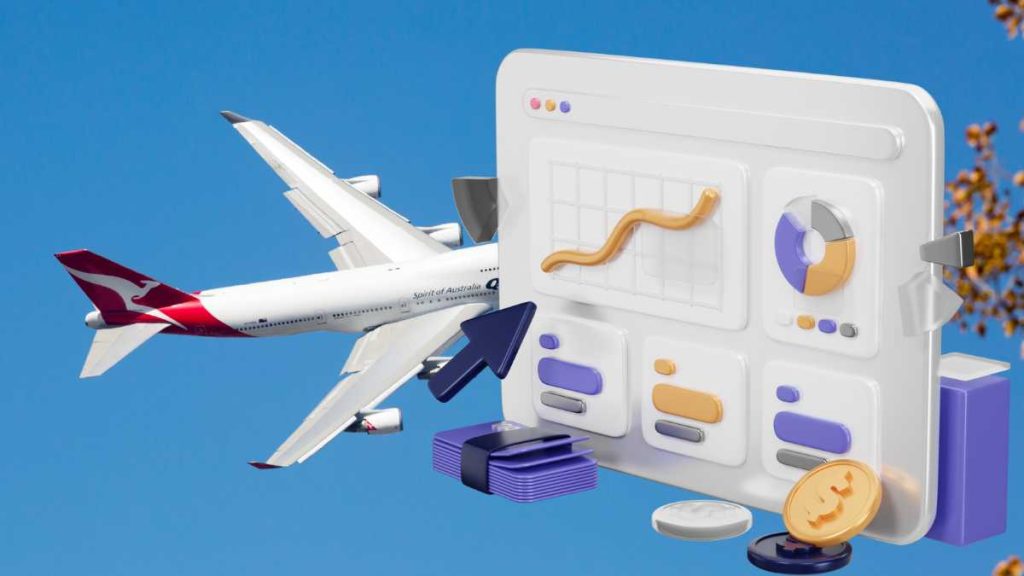Boeing stock, traded under the ticker BA, is a major component of the aerospace and defense industry. Investors often track its performance for insights into the sector’s health.
Boeing, a key player in commercial and military aviation, has faced varied market challenges, including the 737 MAX crisis and the COVID-19 pandemic’s impact on air travel. Its stock price reflects the company’s resilience and response to industry demands and global economic conditions.
As a barometer for both defense spending and commercial airline success, Boeing’s financial performance garners significant attention from investors and market analysts. Engaging with Boeing stock requires an understanding of complex factors, from geopolitical tensions to airline industry trends, making it a sophisticated choice for diversified portfolios.
Boeing’s Historical Performance
Boeing’s Historical Performance reveals the dramatic narrative of an aerospace pioneer. This journey spans triumphs and challenges. Understanding Boeing’s past equips investors with insights for the future. Let’s explore the timeline of Boeing’s market endeavors.

The Early Glory Days
Boeing, founded in 1916, quickly became an aviation powerhouse. Its innovative aircraft transformed air travel. The company’s stock mirrored this ascent, showcasing impressive growth. This period marked Boeing’s entry into the commercial airline space, cementing its status in stock market history.
Notable milestones include:
- Introduction of the B-17 Flying Fortress during World War II.
- The debut of the 707 jetliner in the 1950s.
- The development of the 747 jumbo jet in the 1960s, changed international travel.
Turbulence And Recovery
No flight is without its bumps. Boeing faced multiple challenges over the years. Scandals, crashes, and financial crises tested Boeing’s stability. Each time, the company deployed recovery strategies. Here are key events Boeing navigated:
| Year | Event | Stock Impact |
|---|---|---|
| 1971 | Supersonic transport program cutbacks | Negative, but limited |
| 2001 | 9/11 attacks | Severe downturn |
| 2008 | Global financial crisis | Significant drop |
| 2019 | 737 MAX groundings | Sharp decline |
| 2020-Present | COVID-19 pandemic | Volatile, ongoing recovery |
Boeing’s resilience has been tested. Yet, it remains a key player in aviation. Stock fluctuations reflect the company’s agility in facing adversity. Investors watch closely as Boeing charts a course through each storm.
Recent Surge In Boeing Stocks

Excitement fills the air as Boeing stocks climb. Investors are smiling. The market is buzzing. Let’s dive into what’s causing this upward trend.
Trigger Factors
The stock market can be like a roller coaster. For Boeing, specific triggers have caused a big jump. It’s like finding clues in a puzzle. Each piece reveals part of the story.
- New contracts spell success.
- A focus on safety improvements builds trust.
- The return of the 737 MAX excites customers.
- Positive news with vaccine rollouts lifts hopes.
- Global travel reopens, aviation demand soars.
Impact Of The Market
When stocks soar, effects ripple outward. Boeing’s rise affects many. Here is a snapshot:
| Stakeholder | Impact |
|---|---|
| Investors | Portfolios grow; confidence builds. |
| Employees | Job security strengthens; morale boosts. |
| Industry | Suppliers flourish; innovation sparks. |
| Economy | Market expands; opportunities increase. |
Investor’s eyes stay glued to charts. Every jump in Boeing’s shares sends positive waves. The whole market feels the surge.
Financial Analysis Of The Surge

Boeing’s stock surge shines in a spotlight on their latest financial performance. A close look at this leap reveals a story of resilience and strategic wins. Investors and market analysts turn a keen eye to the aviation giant’s key financial indicators to gauge the sustainability of Boeing’s recent success. In this analysis, we dissect the numbers that matter most.
Key Financial Ratios
Essential for evaluating Boeing’s financial health, key financial ratios tell a story beyond the stock price. Let’s unbox some of the ratios that capture the interest of savvy investors:
- Price-to-Earnings (P/E) Ratio: Reflects investor expectations for future earnings.
- Debt-to-Equity Ratio: Signals the company’s leverage and financial stability.
- Return on Equity (ROE): Measures profitability from shareholders’ perspective.
Recent financial reports suggest these ratios have improved significantly, indicating a possible sustained upturn for Boeing’s stock.
Profit Margin Insights
Profit margins offer a deeper dive into Boeing’s operational efficiency. They show how much Boeing can turn sales into profits. Here’s an insight into Boeing’s profit-making capabilities:
| Profit Margin Type | Current Value | Industry Average |
|---|---|---|
| Gross Profit Margin | X% | Y% |
| Net Profit Margin | A% | B% |
| Operating Profit Margin | C% | D% |
Boeing’s profit margins, when compared with industry averages, offer insights into its competitive edge and operational prowess in the current market.
Investor Sentiment And Market Confidence

Investor Sentiment plays a crucial role in the financial markets. Market Confidence can significantly impact the performance of stocks, like Boeing. Let’s dive into the latest on Boeing’s stock from the perspective of both market professionals and general investors.
Polls And Surveys
Polls and surveys give us insight into investor sentiment. They are important tools for understanding how people feel about Boeing stock. Let’s look at some recent findings:
- Investor confidence: Recent polls show a positive trend in investor confidence in Boeing.
- Market predictions: Surveys suggest that many investors expect Boeing’s stock to rise.
- Consumer opinions: General sentiment among non-professional investors is also on the upswing.
Analyst Ratings
Professional analysts spend their time studying companies like Boeing. They predict how stocks will move. Below, see the latest analyst ratings for Boeing:
| Analyst Firm | Rating | Price Target |
|---|---|---|
| XYZ Capital | Buy | $250 |
| ABC Securities | Hold | $230 |
| Global Invest | Sell | $200 |
It’s clear that opinions vary among experts. These ratings impact how investors view Boeing’s future on the market.
Fintech Influence On Stock Trading
The way we trade stocks is changing fast. Fintech, or financial technology, is a big reason why. It lets us buy and sell stocks quickly and smartly. People look at Fintechzoom Boeing Stock and see these changes happening right now. Let’s dive deeper into how fintech shapes stock trading today.
Emergence Of Mobile Trading
Going mobile with stock trading has never been easier. Apps on phones let traders move fast and stay informed. This means you can trade Boeing stocks anytime you want, from anywhere. Talk about freedom!
- Always up-to-date with market news
- Trade with just a few taps
- Get alerts on price changes
Ai And Stock Predictions
Imagine knowing when a stock will go up or down. That’s what AI tries to do. It looks at tons of data and finds patterns. This can give traders like you an edge, especially with stocks like Boeing.
| AI Benefit | How It Helps in Trading |
|---|---|
| Data Analysis | Scans through massive data quickly. |
| Trend Prediction | Spot potential movements before they happen. |
| Risk Assessment | Evaluates the risk level of stock trades. |
Comparing Aerospace Competitors

When investing in aerospace stocks like Boeing, it’s vital to analyze the competitive landscape. Understanding how Boeing stacks up against its rivals can offer insights into the company’s performance and potential growth. We dive into the competitive field, focusing on market share and technological advancements.
Market Share Battles
Boeing goes head-to-head with rivals in the aerospace sector. The company’s piece of the market pie is significant but fluctuates based on various factors including sales, innovations, and economic conditions. The clash for market dominance is fierce, with major competitors like Airbus. Here’s a snapshot of the current market share:
| Company | Market Share |
|---|---|
| Boeing | 43% |
| Airbus | 57% |
Airbus currently leads, but the tides can turn with each new aircraft release or big deal signed.
Innovation And Technology
The aerospace industry thrives on breakthroughs. Companies like Boeing invest heavily in research and development. Innovation becomes the benchmark of competition. Both Boeing and its competitors continually push the envelope in areas such as:
- Fuel efficiency
- Aerodynamic design
- Autonomous flight technology
- Advanced materials
Boeing’s rivals also bring impressive tech to the table. Airbus, for one, unveiled their plans for zero-emission aircraft. The race is on for a cleaner and more sustainable sky. This innovation attracts airlines, and investors, and positively impacts stock value.
Future Outlook For Boeing

The future of Boeing sparkles with innovation and growth. This influential aerospace company is set to soar with strategic moves and adapts to market changes. Let’s explore the powerful steps Boeing is taking to stay at the top.
Business Strategies
- Investment in Sustainability: Boeing aims to fuel future flights with eco-friendly power.
- Enhancing Technology: They focus on cutting-edge tech to improve safety and performance.
- Global Expansion: By entering new markets, Boeing plans to widen its global reach.
- Defense and Space Exploration: Strong investment in these sectors ensures diverse revenue streams.
Potential Market Disruptors
- New Competitors: Start-ups with innovative designs could change the game.
- Changes in Regulations: New laws can shift how Boeing operates worldwide.
- Technological Breakthroughs: Advancements like AI could revolutionize air travel.
- Economic Fluctuations: Global economic variations directly impact aerospace.
Investing In Boeing: Risks And Opportunities

Boeing stands as a dominant force in the aerospace sector. Its shares attract investors worldwide. Yet, like any investment, Boeing’s stock presents both risks and opportunities. Investors must weigh these carefully before diving in. This dive explores the factors that shake up Boeing’s stock and the long-range outlook for those invested in the company’s future.
Volatility Factors
Market fluctuations and industry dynamics can sway Boeing’s stock. External events, such as geopolitical tensions, also play a role. These variables can lead to sudden changes in stock price. Investors in Boeing must stay alert to these shifts:
- Economic disturbances
- Regulatory changes
- Technological advancements
A table that illustrates how each volatility factor can impact the stock might look as follows:
| Factor | Impact on Stock |
|---|---|
| Economic disturbances | Potential dip in aerospace demand |
| Regulatory changes | Compliance costs that may affect profit margins |
| Technological advancements | Opportunities for innovation and growth |
Long-term Prospects
Looking ahead, Boeing’s long-term potential is tied to its innovation and backlog of orders. With a nod to sustainability and cutting-edge technology, Boeing could maintain its market position:
- Expansion into new markets
- Advancement in eco-friendly aviation technology
- Government and defense contracts
In assessing Boeing’s future, one must consider these facets. A table analyzing long-term prospects could appear as follows:
| Prospect | Potential Impact |
|---|---|
| New market expansion | Broader revenue streams |
| Eco-tech advancement | Leadership in sustainable aviation |
| Defense contracts | Stable, long-term revenue |
Frequently Asked Questions For Fintechzoom Boeing Stock
Is Boeing A Good Stock To Buy Right Now?
Determining if Boeing is a good stock to buy requires current market analysis, investor risk tolerance, and financial goals. Consult a financial advisor for personalized advice.
Can I Buy Stock In Boeing?
Yes, you can purchase Boeing stock through a brokerage account. Boeing trades on the NYSE under the ticker symbol “BA”. Always consider consulting a financial advisor before investing.
Who Owns The Most Boeing Stock?
The Vanguard Group, Inc. holds the largest share of Boeing stock, as per the latest available data. This top investment management company has a reputation for significant holdings in large corporations.
What Is The Name Of Boeing Stock?
The name of Boeing’s stock is “Boeing Co,” and it trades under the ticker symbol “BA” on the New York Stock Exchange (NYSE).
Conclusion
Wrapping up, Boeing stock embodies the dynamic nature of the fintech sector. With each market fluctuation, investors glean new insights. Staying informed is key to navigating this ever-evolving landscape. Trust Fintechzoom for the latest updates and trends to guide your investment journey with confidence.



